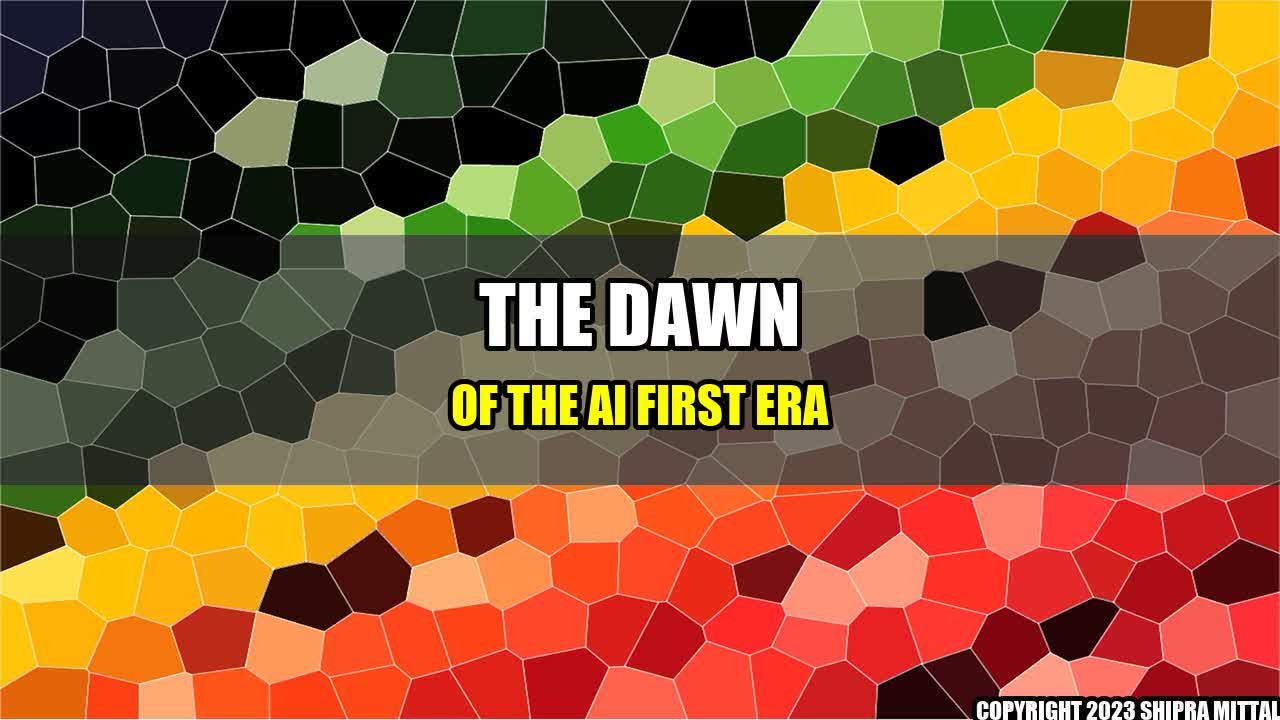From the horse carriage to the self-driving car
Imagine it's the early 1900s and you're riding in a horse carriage down a dirt road. Suddenly, you see a car zoom past you, making a loud noise and emitting a foul smell. You shake your head and scoff at the thought of this new technology ever replacing the majestic animal pulling your carriage.
Fast forward to present day, and we're on the cusp of a similar transition, but this time it's not cars replacing horses – it's AI replacing humans.
The rise of AI-first companies
AI is no longer a pie-in-the-sky concept relegated to sci-fi movies and university research labs. It's here, and it's transforming the way we live and work. AI-first companies, such as Google and Facebook, are leading the charge by incorporating machine learning and natural language processing into their products.
Even traditional industries, such as healthcare, finance, and transportation, are embracing AI in order to increase efficiency and reduce costs. For example, IBM Watson is being used to assist doctors in diagnosing patients, while Uber is investing heavily in self-driving cars to replace human drivers.
Quantifiable examples of AI impact
The impact of AI is not just theoretical – there are clear, quantifiable examples of its effects:
- Amazon's AI-powered recommendation system is responsible for 35% of the company's revenue
- Chatbots are predicted to save businesses over $8 billion per year by 2022
- AI-powered fraud detection systems have reduced credit card fraud by 70%
AI and the human workforce
One concern about AI is the potential impact on jobs and the human workforce. While it's true that some jobs will eventually become automated, AI also has the potential to create new jobs and industries.
For example, a recent study by Accenture found that AI could add $14 trillion to the global economy by 2035. This growth is expected to create new jobs in areas such as data analysis and machine learning engineering.
The ethical implications of AI
As with any revolutionary new technology, there are ethical implications to consider when it comes to AI. One issue is the potential for bias in algorithms – if the data used to train an AI system is biased, the results can be as well.
Another concern is the potential for AI to be used for malicious purposes, such as cyber attacks or surveillance. It's important that we approach AI development with a focus on ethics and responsibility.
Conclusion
AI is here to stay, and its effects on society and the workforce will continue to be felt. To summarize:
- AI is transforming industries and creating new opportunities
- Quantifiable examples show the impact of AI on business and society
- Ethical considerations must be at the forefront of AI development and implementation

Akash Mittal Tech Article
Share on Twitter Share on LinkedIn